Heavy snow causes widespread disruption in Scotland
- Published
Large parts of Scotland woke up to a blanket of snow on Thursday, including in Rutherglen where conditions became challenging for drivers
Motorists continue to face difficult conditions after heavy snow across parts of Scotland caused road closures.
A Met Office yellow warning, external for ice will be in place overnight and for all of Friday for mainland Scotland.
The A9 at Dunblane was closed due to snow but has now reopened, while driving conditions on the M90 and M8 were reported as difficult.
There have also been problems in the Scottish Borders where up to a foot of snow fell overnight.
Traffic Scotland has reported difficult driving conditions on the M77 at Fenwick, M80 around Cumbernauld and the A9 at Greenloaning.
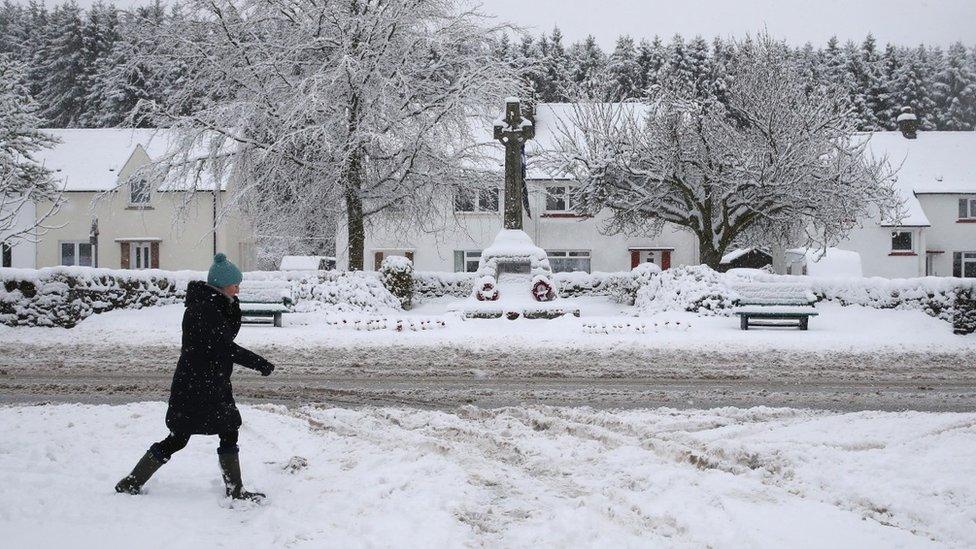
A woman walks through the snow in Braco near Dunblane
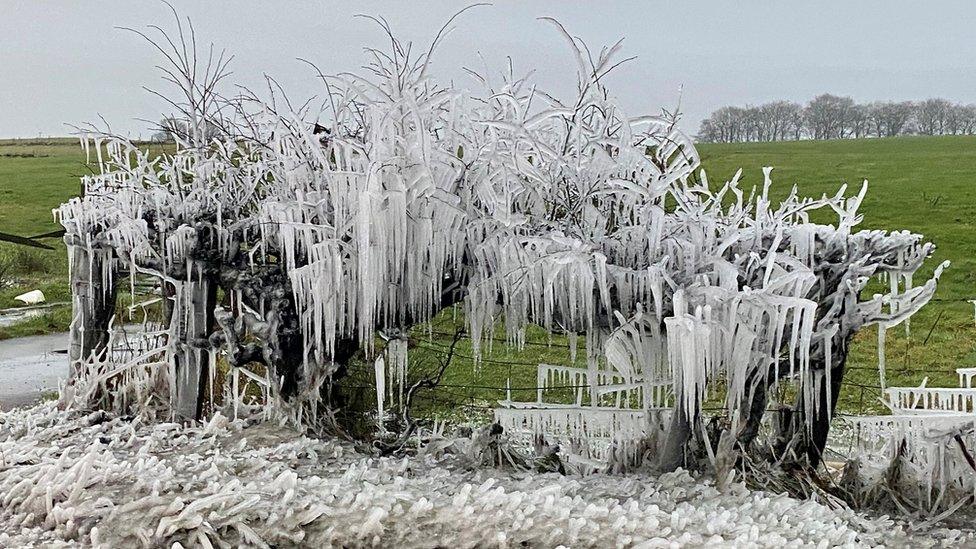
The impact of the overnight freeze on a hedgerow near Strathaven, South Lanarkshire
In the Borders several lorries got stuck on the A7 between Selkirk and Hawick, while difficult driving conditions were also reported on the A68 at the Carter Bar and Soutra.
There were also delays on the A83 Old Military Road diversion and the A82 at Tyndrum.
Meanwhile, police have urged drivers to properly clear their car windscreens before setting off in the wintry conditions.
Officers in Dumfries and Galloway shared a picture of a driver they stopped and charged for failing to do this.
Allow X content?
This article contains content provided by X. We ask for your permission before anything is loaded, as they may be using cookies and other technologies. You may want to read X’s cookie policy, external and privacy policy, external before accepting. To view this content choose ‘accept and continue’.
People should only be leaving home to make essential journeys in parts of Scotland under level four Covid measures, under current Scottish government lockdown regulations. , external
Ch Supt Louise Blakelock, of Police Scotland, said: "Government guidance on only travelling if your journey is essential remains in place and so with an amber warning for snow, please consider if your journey really is essential and whether you can delay it until the weather improves.
"If your journey really is essential, plan ahead and make sure you and your vehicle are suitably prepared by having sufficient fuel and supplies such as warm clothing, food, water and charge in your mobile phone in the event you require assistance."
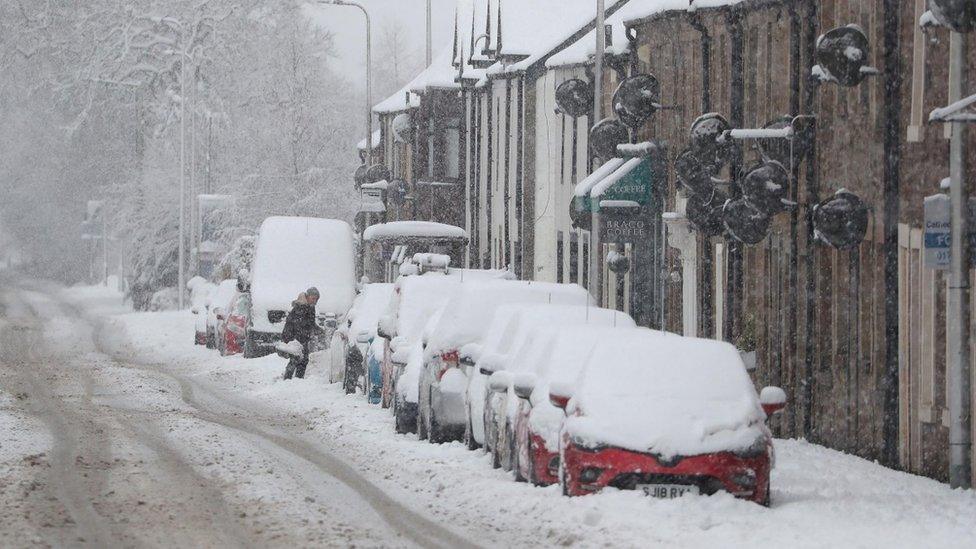
A motorist brushes snow off a car in Braco near Dunblane

The village of Bowden near Melrose woke up to snow
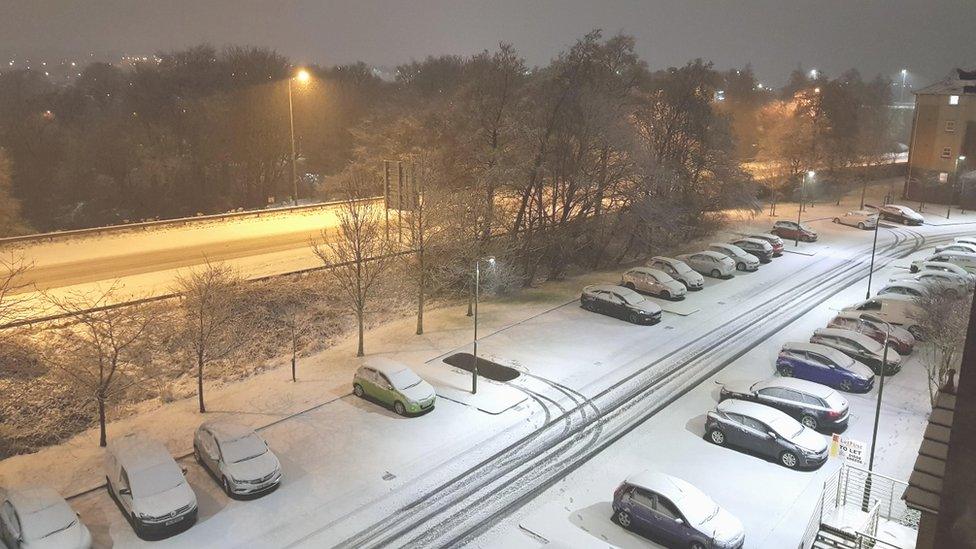
A snowy street in Livingston
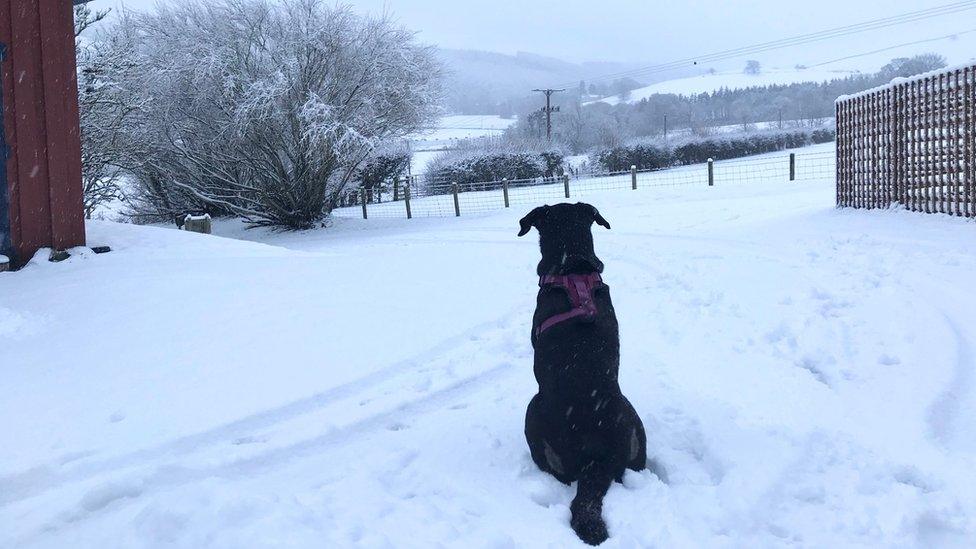
A snowy scene at Fountainhall in the Scottish Borders
Police in Shetland have also warned of ice badly affecting roads on the islands.
ScotRail said its services could be affected, particularly on the Highland mainline.
Scottish Borders Council said the effects of the adverse weather could cause disruption into Friday morning.
Emergency planning officer Jim Fraser said: "With widespread snow and some freezing rain possible over the course of Wednesday and Thursday, there is the strong potential for disruption across our road network and communities."
Allow X content?
This article contains content provided by X. We ask for your permission before anything is loaded, as they may be using cookies and other technologies. You may want to read X’s cookie policy, external and privacy policy, external before accepting. To view this content choose ‘accept and continue’.

Some of the deepest snowfalls in recent weeks have been in the Highlands, including the Cairngorms.
Earlier this month, the UK had its coldest night of the winter so far after a temperature of -12.3C was recorded in the north west Highlands.
The temperature was recorded at Loch Glascarnoch, near Garve, south of Ullapool in Wester Ross.
The record lowest temperature in the UK is -27.2C, which was recorded in Braemar, Aberdeenshire, in 1895 and 1982 and at Altnaharra in the Highlands in 1995.